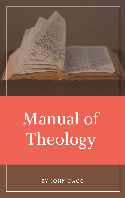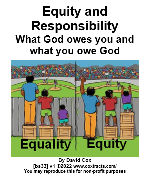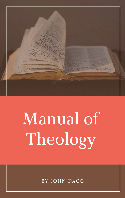Ads
Contents
Comments on Recovering from Churches that abuse Exiting #4
Comments on Recovering from Churches that abuse #4 I Comment on Chapter 2 Is there light at the end of the tunnel? Churches that abuse Exiting them.
Commentary about Enroth, R. – Recovering from Churches that Abuse
Chapter 2: Is There Light At the End of the Tunnel?
Basically, Enroth identifies bad churches as practicing blame-shifting. He accuses all of evangelical Christianity here, mentioning “fundamentalist” several times. My experience with Christians is somewhat different. Within the Baptist movement and the Fundamentalist movement, blameshifting is not really that much of a problem. Most of the abusive pastors I have known in the past didn’t accuse their members for the failure of the church. They just ignore failure, and they themselves don’t own up to any part of it. In extreme cases, they just leave.
David Johnson and Jeff VanVonderen write, “People who have been spiritually abused tend to have a negative picture of self, or a shame-based identity … Shame is an indictment on you as a person … You feel shame even when you’ve done nothing wrong; you feel defective as a human being, and like a third-rate Christian undeserving of God’s blessings and acceptance.”2
Okay, I understand the emotional trauma of being in an abusive church and all the problem of leaving that. But we live in a society that just doesn’t want to own up to one’s own faults and actions. First of all, as a pastor, the church pressures me to both lead (take initiative and go forward with the Lord’s work) and at the same time, they want me be submissive to their wishes. You cannot have it both ways. When things go right (because of a lot of sacrifice from somebody) then others come in and want to control. When things go wrong, finger pointing starts and nobody wants to own problems and mistakes. This problem is not related to the leadership of an abusive church, but it is the entire church functioning, members as much as leaders.
When somebody blames me for something that I rightly DID WRONG, I feel bad too. But the point here is that everybody makes mistakes, and we pick up the pieces, put them back together the best we can and go forward. King David killed his head general because David fell into lust and basically raped Bathsheba. Nothing noble or good there. Peter denied Christ, and later was carried away with the Judaizers against Paul and the Gentile Christians, so nothing noble or good there. My point is that it is not outside of normal Christian experience to make mistakes, but owning up to your mistakes and not crying “I’m a victim!” and “I am depressed, give me sympathy”.
My bottom line here is nobody MADE these Christians join this dysfunctioning, abusive churches in the first place. They made their choice, and if it was good, they will be blessed, and if it was bad, they will be the ones to suffer. I try to convict people to join our church all the time. I witness the to the unsaved. But when they decide to go with the Jehovah’s Witnessing, and 2-3 years after that they come to me crying about their bad experiences, I have little pity for them. I again offer them to come with us. It is like a marriage that goes bad. If a Christian girl marries an unsaved man and then he abuses her, and they get a divorce, we can cry and have sympathy for the girl, but in reality, she should not have gotten into that relationship in the first place.
What happened is she lower her norms, the norms that God has given us to follow, and either she happily went through life without knowing those norms, because she is ignorant. But surely God has spoken to us about the important things of life, and 1) she as a Christian should be seeking to learn those norms and follow them, 2) a good daily devotional walk with God would have broken that relationship before it got to marriage in the first place.
So we talk about blame shifting. I take nothing away from the blaming of the false prophet. I condemn him by Scripture and do not defend him. But I also blame the ignorance of Christians and their worldly walk far from God on a day by day basis. All the testimonies in Enroth’s book shock me. They shock me because a real Christian would seen something wrong way from the beginning and taken a step back and prayed about it and asked good Christian counsel from people outside of the situation and would have stopped their entrance into that abusive church. That is how most of the Christian people that are good Christians would have reacted in these situations.
On the other hand, most carnal, ungodly “Christians” I know would not have cared until it got seriously wrong and harmful. They then would have been deeply “hurt” and give testimonies like the majority of these in Enroth’s work. Maybe these people were good Christians, but being in these situations doesn’t testify to their being good Christians in the first place.
A CYCLE OF ABUSE
Enroth talks of “a Cycle of Abuse” implying that once a person is abused (again through no fault of his own) he will unconsciously seek other relationships where he or she is going to be the abused again. I can testify that some married couples go through this, but usually, it is the problematic partner that seems to be in the constant reboot cycle. Usually, from my experience, an “innocent” part will shy away from any relations to anybody. In a church situation, this would be the person who stops going to church altogether. There are those out there.
Another element here are people that are somehow crazy, and they feel like they need to be condemned, and they actually seek abusive people in their lives to chastise them through abuse. I don’t understand how mixed up a person like this is, but I see them getting abused, coming to me (a pastor in another church that doesn’t do those abusive things) and then no matter what I tell them, they will go back to the abuser church and get more abuse. Disheartening.
The testimony of Cecily is interesting. (This is true to my experience). There is a tendency to equate “whatever church experience I have” with all churches everywhere and church as God has designed it. I have counseled people about these kinds of abuses, and I tell them the following. If you go to a doctor and he gives you a bad diagnosis and it doesn’t help your illness or makes you worse, or you go to a dentist and he messes up your teeth worse than they were when you came in, do you declare that you will never go to another doctor or dentist? No! Would that be a fair treatment of the entire dental profession or medical profession? No!
The issue here is not to give up on “the concept of church” because it is a lost cause as far as being a part of a good church, but to set firmly in your mind what a good church is, and start a quest to find or make a church a “good one”.
I have met people who have actually given up good paying jobs in factories because there was no good church near where that was. They moved to another state and city on the basis of there being a good church in their new location, and finding a job is a secondary issue. There is devotion to the Lord.

Dagg Manual of Theology is a theology work in 2 volumes by J.L. Dagg a Reformed Southern Baptist. It is an extensive, very ample presentation of doctrines.
This is an extensive Bible Systematic Theology (Bible Doctrines book) from a conservative point of view.
Read/Download: now with pdf download link. 50,000 views on this page with download link





 bs33 Equity and Responsibility
bs33 Equity and Responsibility
